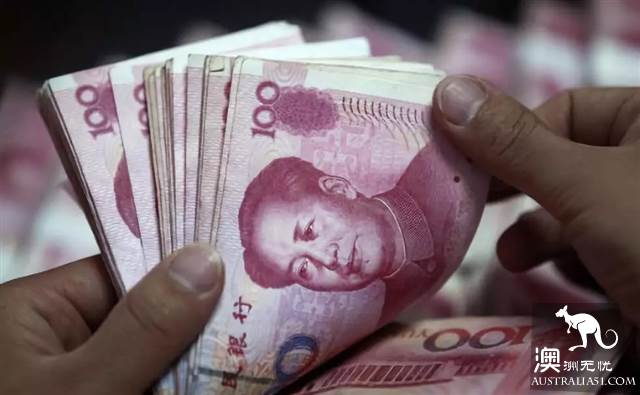Recently, China's government began to crack down on "underground banks," in addition to warnings, fines, serious cases are more difficult to escape prison. Are these non-government lending institutions that used to wander in the "grey zone" gone?
"Underground banks" illegally helped thousands of Chinese citizen to transfer money out of China, either to invest or to fire homes, and if they left, it would be another fatal blow to the already moribund Australian property market.

At the beginning of this month, in order to further curb the capital outflow, the Supreme people's Court of China and the Supreme people's Procuratorate of China jointly issued a < on handling illegal fund payment and settlement business, Explanation of the Application of law in Criminal cases of illegal Foreign Exchange Trade (hereinafter referred to as "interpretation").
Market analysts believe the move reflects the determination of China's government to boost economic, stimulate the local property market and maintain stability in the stock market.
According to the explanation, if the illegal business amount is more than 5 million yuan (about 1.04 million Australian dollars), or the amount of illegal income is more than one hundred thousand yuan (about 20758 Australian dollars), the illegal business operation shall be deemed to be "serious". If the circumstances are serious, the offender shall be sentenced to fixed-term imprisonment of not more than five years or criminal detention, and concurrently or solely be sentenced to a fine of not less than one and not more than five times the illegal proceeds.
If the illegal business amount is more than 25 million yuan (about 5.19 million Australian dollars), or the amount of illegal income is more than five hundred thousand yuan (about 103767 Australian dollars), the illegal business operation shall be deemed to be "particularly serious".
If the circumstances are especially serious, the offender shall be sentenced to fixed-term imprisonment of not less than five years, and concurrently be sentenced to a fine of not less than double the illegal proceeds and not more than five times, or confiscation
In China, billions of dollars go overseas through underground banks. With that money, tens of thousands of middle-class people invest or buy homes in Australia, New Zealand, Canada, Britain and other countries.
Guan Tao (Guan Tao), a former director of the balance of payments Department of the State Administration of Foreign Exchange, said the growing enforcement efforts had given these "underground banks" a strong warning signal that it would curb illegal capital outflows from China.
“
Australian real estate developers, intermediaries and accountants also believe the latest changes in China's foreign exchange and capital transfer laws will further dampen foreign buyers' interest in the Australian property market and could scare off Chinese buyers who were already legally traded.
”
Australian real estate industry analysts said the new rules were aimed at operators of "underground banks" rather than individuals seeking to buy apartments or villas in Australia. But it will still affect legitimate deals, as buyers fear sending money to intermediaries that have traditionally facilitated such deals.
Jack Zhang, an accountant based in Sydney, said: "most people are afraid of transferring money, even in legal amounts, mainly because they are afraid that the money will disappear or will not be able to follow up."
Developers also warned that in Australia, those house transactions through the renminbi would be suspended.
Walton Chu of Home789, a house agency, said the market had been hit by a series of surcharges and that the new rules would further dampen the enthusiasm of overseas buyers.
Local Chinese business groups in Australia say the transfer of money to Western Union's remittance network, (Western Union outlets), could also be considered illegal under the new rules.
However, there are also voices that such "underground" transactions have long been "banned" rather than "stopped" in China, and therefore have little impact on future capital transfers.
In 2018, China's foreign exchange regulator targeted 70 "underground banks", involving more than 100 billion yuan in transactions.
Liu Yuan, director of research at the Central Plains real estate (Centaline) China real estate Research Center, said the new rules would mainly affect transactions ranging from 1 million yuan to 10 million yuan. Because rich people looking for big deals can have other ways to get money from abroad. He believes that underground banks can still try to bypass the new rules. Australia's real estate industry will be affected by these regulations, but will not be completely strangled.